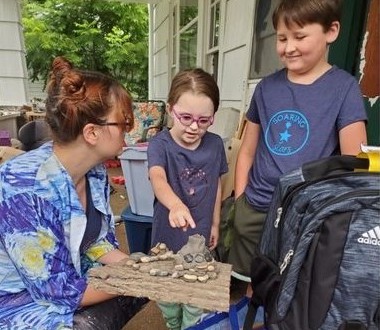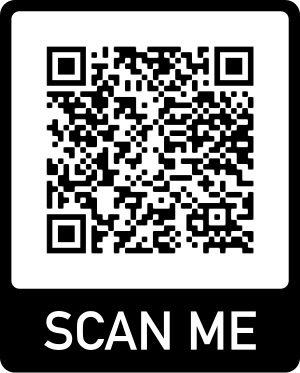Rob Hawley ’12/M.S.Ed’15, left, Sarah Hill Stone ’12/M.S.Ed ’16, Mike Masetta ’19, and Alyssa Cole ’16 were among six teachers to lead the Soaring Stars Summer Program this year. (SUNY Geneseo/Kris Dreessen)
Four Geneseo alumni from the School of Education are among the six faculty that co-led content and teaching for the Soaring Stars program, providing rising K-6th grade students in the local area with interactive lessons so they can continue to learn over the summer.
Alyssa Cole ’15, Mike Masetta ’19, Sarah Hill Stone ’12/MSEd ’16 and Rob Hawley ’12/MSEd ’15 spent a month over June and July creating and conducting a virtual curriculum for 20 students in five districts in Livingston and Monroe counties. Cole and Masetti began working in the program as undergraduates, and each of the alumni are elementary teachers at local schools.
This is the 10th anniversary of programming for Soaring Stars, which provides enrichment opportunities for rural, economically disadvantaged children who otherwise would not have access to programming that helps them develop their interests and self-confidence in their abilities. The program focuses on the Reggio Emilia educational philosophy, which encourages children to develop individual interests and explore them using art, music, technology, building projects and physical activities.
“We aim to improve the graduation rate of rural economically disadvantaged students, who graduate with less frequency than their non-economically disadvantaged school district peers,” says Annmarie Urso, Soaring Stars program director and associate professor in the School of Education. We believe that by reducing and eliminating summer learning loss through our program, our students will be better situated to complete high school successfully.”
Due to the COVID-19 pandemic, the 2020 and 2021 sessions were entirely virtual. Soaring Stars teachers made weekly home visits and dropped off activity bags and shelf-stable lunches for particip ants . The teachers document student progress through daily interactions via “virtual office hour” meetings and review of student submitted photos, videos, and writings on the program’s virtual learning platform. At first it was difficult to transition to entirely virtual, when so much of Soaring Stars has been hands-on, the alumni say, but the experience has strengthened their skills and imaginations to better apply open-ended learning through play while online. To do so, they copied the space and experience in online environments as much as they could.
ants . The teachers document student progress through daily interactions via “virtual office hour” meetings and review of student submitted photos, videos, and writings on the program’s virtual learning platform. At first it was difficult to transition to entirely virtual, when so much of Soaring Stars has been hands-on, the alumni say, but the experience has strengthened their skills and imaginations to better apply open-ended learning through play while online. To do so, they copied the space and experience in online environments as much as they could.
“That is what led to the variety of learning opportunities we gave the each week,” said Masetta.
Students chose one of three tracks for the program: detective, forest ranger or mechanical mastermind. Activities according to track included inventing a contraption to hold an egg that would protect it if dropped, creating a science disguise, building a box car out of cardboard, and creating gnome houses that will be set along the Greenway Trail in Livingston County for hikers to enjoy. The students can see who spots their houses with a Google app (see QR code at bottom).
“We get them to ask questions to get them to think deeply about projects and come to answers on their own,” says Cole.
Urso says that over 250 individual children have utilized the Soaring Stars program since 2012. Many of these children return yearly during their eligibility to attend in rising kindergarten through rising 5th grade.
Scan this QR code for more information about the gnome Greenway project. 
